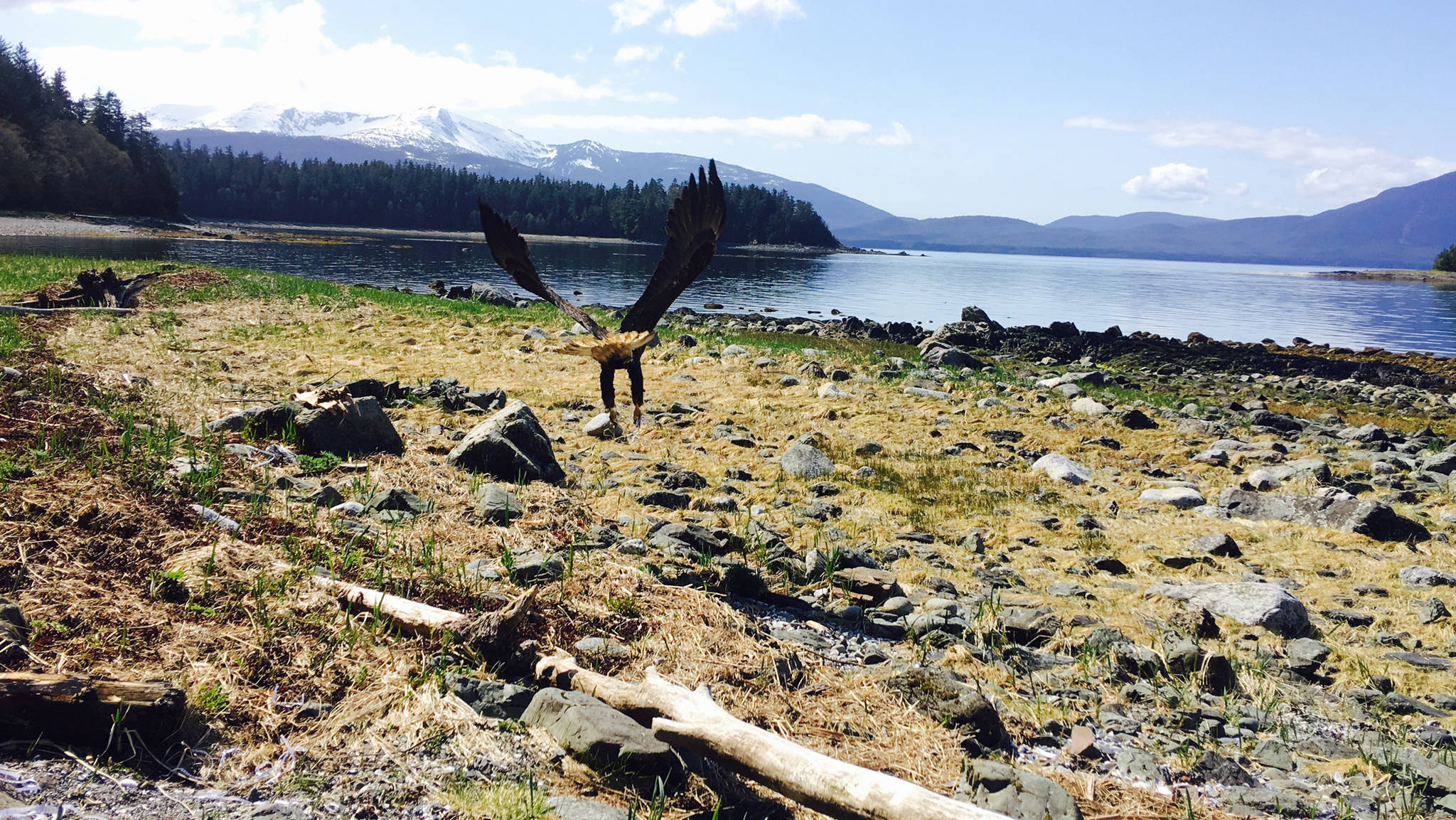On May 2, Juneau Raptor Center volunteers responded to a page about an unconscious adult bald eagle on Juneau’s North Douglas Rainforest Trail. The bird was immediately taken to JRC’s clinic, administered subcutaneous fluids and antibiotics. Thankfully, there was no evidence of broken bones. She was also administered charcoal because she exhibited symptoms of possible poisoning. We find that sometimes beloved pets, after they have been euthanized, are buried in the forest (which is a citable offense under city ordinances; the city law states it’s illegal to bury a dead pet on either private or public land, without permission.) Unfortunately, they are often uncovered by wildlife with the resulting ingestion of toxins. If this is done, it’s very important that the animal is first properly wrapped prior to burial. Cremation is best.
Exam revealed a very large bird weighing around 15 pounds. She was not thin. Further exam revealed a brood patch indicating she had laid eggs or was brooding them before she was injured.
The hiker who found her thoughtfully marked the direction of the bird in the dirt with sticks and arrows; a huge help to us in quickly locating her. He first called U.S. Fish and Wildlife Service who in turn paged us. Our pager number is (907) 790-5424 (answered 24/7).
On the third day of care, she regained consciousness and was standing. She was such a strong bird!
After going to Sitka to test her flight abilities and passing that test perfectly, she was returned to Juneau. On May 6, she was returned to the site where she was found, released from her kennel and quickly flew off! When her kennel door was open she quickly came out within seconds and flew a complete circle and landed on a nearby tree. She gave out a long desperate call that I have not heard a bald eagle do before. She was clearly trying to locate her mate. She sat there for 20 minutes waiting for a response. I think at that time she realized where she was and she took flight again and this time with purpose toward the mountains of Douglas Island.
We’re optimistic that she was away from her possible nest for such a short time she will reunite with her mate. When one parent does not immediately return, it’s reported that the other parent will stay on the nest for up to a week. Our fingers are crossed.
Thanks to the hiker that found this bird and got her help as soon as possible! Because of the caring people in Southeast Alaska helping birds, we were able to save a life. Thank you!
Editor’s Note: This article has been updated to include information regarding the legality of disposing dead pets.
• Alexia Kiefer is a volunteer with the Juneau Raptor Center.

